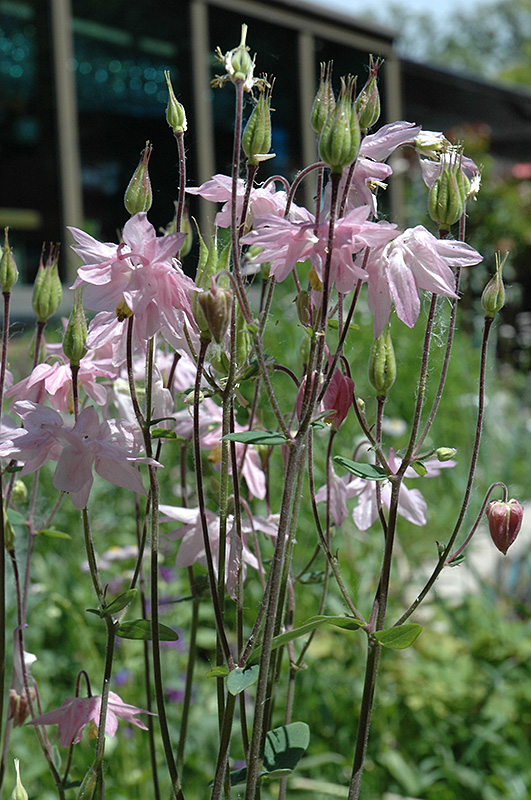Know Before You Go!
Get notified before our plants arrive in stores near you.
Plant Care Library

Apple Blossom Columbine flowers
Apple Blossom Columbine flowers
(Photo courtesy of NetPS Plant Finder)
Height: 24 inches
Spread: 12 inches
Sunlight:
![]()
![]()
![]()
Hardiness Zone: 2a
Other Names: Granny's Bonnet, Crowfoot
Description:
Dainty, pendulous, anemone-like soft apple-pink flowers on a compact, many-branched plant, stems are a deep red color; makes a welcome addition to shade and woodland gardens
Ornamental Features
Apple Blossom Columbine is smothered in stunning nodding shell pink bell-shaped flowers at the ends of the stems from early to mid summer. The flowers are excellent for cutting. Its ferny leaves remain bluish-green in color throughout the season.
Landscape Attributes
Apple Blossom Columbine is an herbaceous perennial with a ground-hugging habit of growth. Its medium texture blends into the garden, but can always be balanced by a couple of finer or coarser plants for an effective composition.
This is a relatively low maintenance plant, and should be cut back in late fall in preparation for winter. Deer don't particularly care for this plant and will usually leave it alone in favor of tastier treats. Gardeners should be aware of the following characteristic(s) that may warrant special consideration;
- Insects
Apple Blossom Columbine is recommended for the following landscape applications;
- Mass Planting
- Border Edging
- General Garden Use
- Groundcover
- Naturalizing And Woodland Gardens
Planting & Growing
Apple Blossom Columbine will grow to be about 24 inches tall at maturity, with a spread of 12 inches. Its foliage tends to remain dense right to the ground, not requiring facer plants in front. It grows at a medium rate, and under ideal conditions can be expected to live for approximately 10 years. As an herbaceous perennial, this plant will usually die back to the crown each winter, and will regrow from the base each spring. Be careful not to disturb the crown in late winter when it may not be readily seen!
This plant performs well in both full sun and full shade. It does best in average to evenly moist conditions, but will not tolerate standing water. It is not particular as to soil type or pH. It is somewhat tolerant of urban pollution. This particular variety is an interspecific hybrid. It can be propagated by division; however, as a cultivated variety, be aware that it may be subject to certain restrictions or prohibitions on propagation.
A NetPS Plant Finder tool
